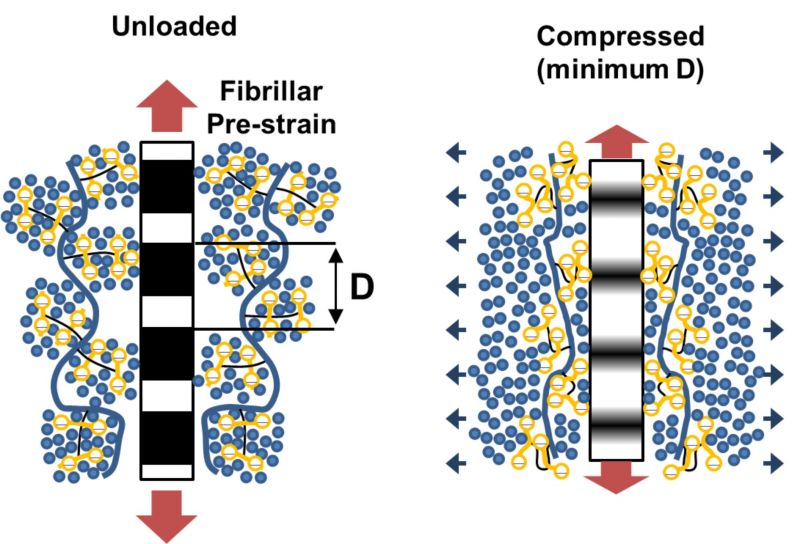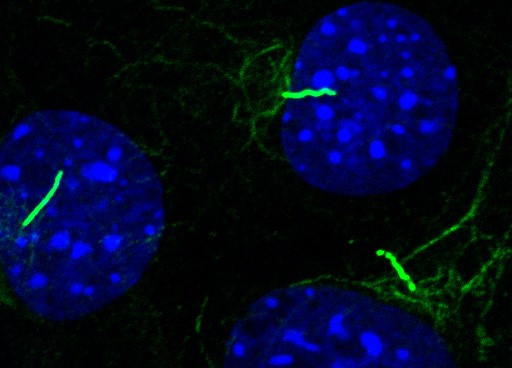Biomechanics, Biofluids and Mechanobiology
The Centre for Bioengineering has a large active group of researchers working in biomechanics, biofluids and mechanobiology using both experimental and computational approaches.
Some of the topics covered include: Mechanical and physical cues by cells in embryogenesis, bone formation and remodelling, and vascular remodelling after exercise; Disease related processes, such as metastasis, atherosclerosis, and hearing/pain sensing; Mechanical stimuli in health and disease response, looking at the whole-body down to individual molecules; Biophysical molecular processes regulating mechanotransduction, and the dynamical (epi)genetic responses of mechanotransductive pathways; Translational bioengineering to develop novel implantable biomaterials, devices, and tissue engineered products; Biological response of cells and tissues to biomechanical, topographical, and physiochemical stimuli in health and disease.

Modelling of collagen fibre strains during cartilage loading

Confocal image of stem cell primary cilia (green)

